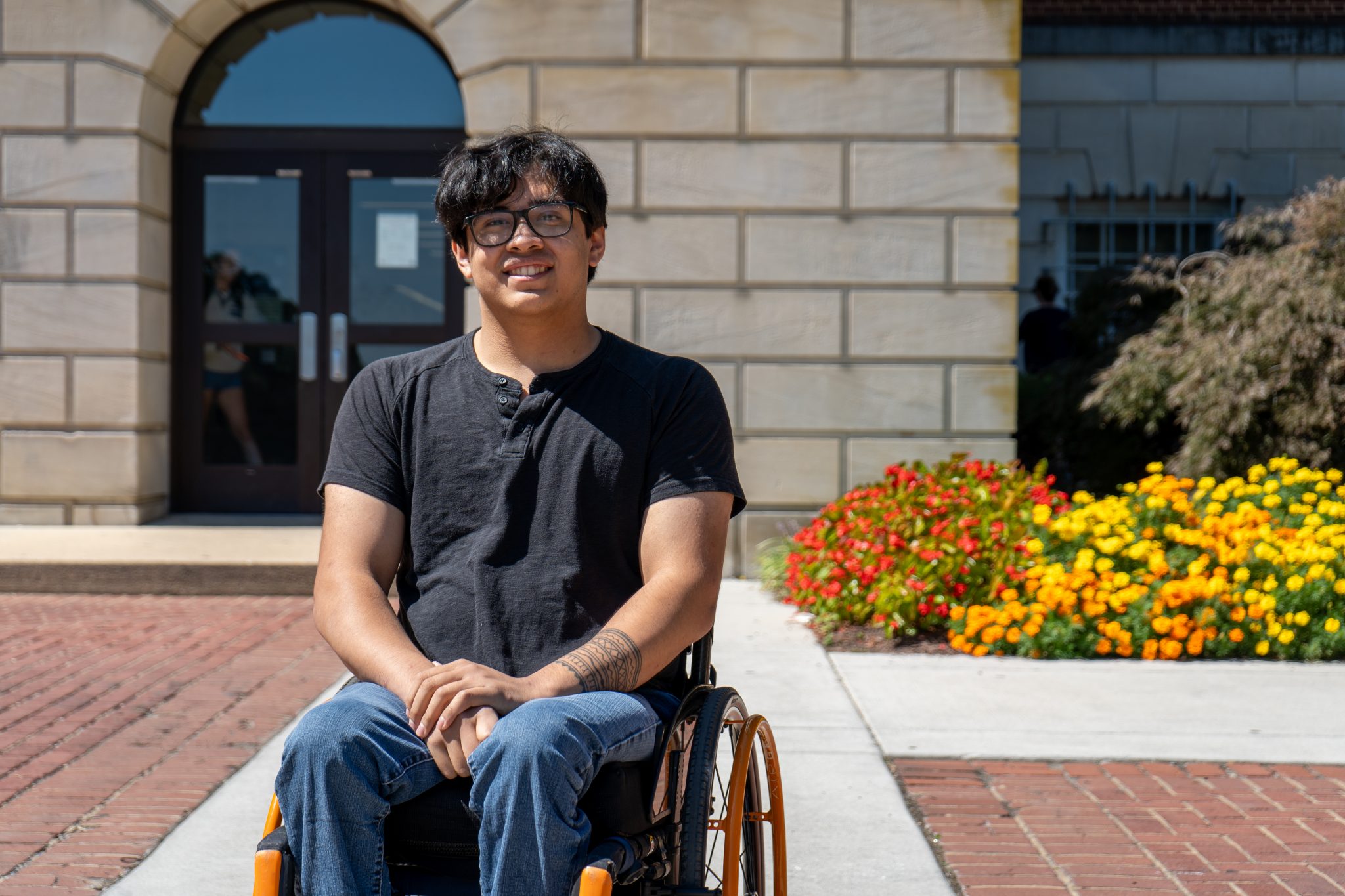As University of Maryland students prepared for the new school year, Noah Hanssen fulfilled a lifelong dream in Paris.
The 24-year-old public policy graduate student competed as a fencer in the 2024 Paralympic Games. Hanssen was the youngest member of the United States’ wheelchair fencing team and was the only student or alum from this university to compete in the games.
“I am still processing that happened,” Hanssen said. “It feels good, but it’s been just a surreal experience.”
His first bout in the men’s individual sabre B event was on Sept. 3 at Paris’ Grand Palais stadium, where he lost to eventual gold medalist Feng Yanke, who represented China. In the event, which is one of three competitive fencing types, fencers use sabre weapons to hit their opponent above the waist.
Hanssen won his next match and eventually placed 10th in the event. Over the next four days, Hanssen also placed 16th in the men’s individual epee event and ninth in the men’s team foil competition.
“I’m quite happy with how I fenced,” Hanssen said. “Definitely showed a lot of improvement.”
Hanssen used to sword fight with his friends and family as a child, he said.
He began historical fencing, or European martial arts, as a high school sophomore and quickly found a passion for the sport. He began to compete in 2018 and joined this university’s fencing club during his freshman year.
Hanssen competed in the 2024 Paralympic wheelchair fencing qualifying cycle, which took place in the two years before the Paris games. In May, Hanssen won zonal championships in São Paulo, which qualified him for the Paralympic team.
[New sports apparel store to receive grant from College Park]
After he qualified, Hanssen said he spent the bulk of his summer training with U.S. parafencing head coach Eric Soyka as well as his training partner Matthew Chin, a sophomore finance major at this university.
Working with Hanssen is “absolutely wonderful,” Soyka said. The pair have trained across the country in Arizona, New York and Colorado.
“He’s able to explain and express where [his] limitations may be,” Soyka said. “He’s willing to try ideas to see if there’s going to be new ways of helping him get something better.”
Hanssen received support from his fencing club colleagues at this university while he competed in Paris.
Peter DeLalio, the fencing club’s president, said many members carefully watched the competition and were impressed with Hanssen’s skill and power.
“Trying to do the moves that he’s doing and the people that he’s facing are doing is almost impossible,” the junior chemistry, economics and math major said. “It’s a league of its own.”
When he wasn’t traveling internationally to compete, Hanssen taught new fencing club members who showed up to practice consistently, DeLalio noted.
[UMD construction round-up: Purple Line, new athletic centers see progress]
Hanssen would conduct private lessons and help club members with their technique, DeLalio said. He added that Hanssen’s advanced level allowed him to catch mistakes that others wouldn’t notice.
“If you met a member of fencing club and they’ve been there for a year or longer, they have been taught by Noah at some point or at least had the chance to face him,” DeLalio said.
Brian Falvey, the fencing club’s sabre team captain, said the whole club was excited for Hanssen to compete in the games.
Hanssen’s expertise in bladework was an asset to the club, Falvey, a senior mechanical engineering major, said.
“At the beginning, our footwork wasn’t amazing,” Falvey said.“But even though our footwork was atrocious, we were really good at bladework because Noah could teach us bladework.”
Hanssen said most of his parafencing experience has likely been against able-bodied opponents. While able-bodied fencing emphasizes footwork, parafencing focuses on bladework, he said.
Hanssen said he left Paris proud of his performance, but always looks to improve.
Though he has not ruled out competing in the 2028 Paralympic Games in Los Angeles, Hanssen said he wants to focus on his master’s degree.
Hanssen returned from Paris on Monday and attended his first class of the semester later that night, he said.
“The introductions of ‘Hey sorry, I’m back from the Paralympics,’ are just gonna be a weird thing for everyone,” he said.
CORRECTION: Due to an editing error, a previous version of this story misspelled Eric Soyka’s last name. This story has been updated.



